/1095045-article-types-of-parenting-styles-5a7cb6aaa18d9e00362ef5eb.png)
4 Parenting Styles Examples So, We Can Say That Parenting Styles Matter When Raising Children.
Berikut ini adalah 5 prinsip pola asuh atau parenting yang bisa Bunda dan Ayah terapkan untuk membantu membentuk karakter positif pada anak: 1. Jadi panutan yang baik bagi anak. Menjadi panutan yang baik adalah salah satu cara mendidik anak yang penting dilakukan oleh para orang tua.

Parenting Styles Chart Choosing Your Battles
Parenting styles. As you research good or gentle parenting practices to determine what makes a good parent, you may come across information about certain parenting styles that many adults use, knowingly or otherwise, when raising their children. Before we get into the research-backed tips, understanding these different parenting styles and knowing the most effective parenting style can be helpful.

Parenting Era Pandemi
Parenting style atau pola asuh adalah cara mengasuh anak yang dilakukan oleh orangtua dalam kehidupan sehari-hari. Pola asuh anak sangatlah penting dalam keluarga karena dapat berpengaruh pada kepribadiannya. Parenting style yang dapat diterapkan orangtua . Parenting style setiap orangtua mungkin berbeda-beda, namun terdapat empat pola asuh anak yang umumnya diterapkan oleh orangtua.

The 4 Parenting Styles Which Raises Wildly Successful Kids?
Abstract. Over the past 60 years, parenting style has been consistently explored, particularly with regard to its role in children's development in western society. Various studies show that.
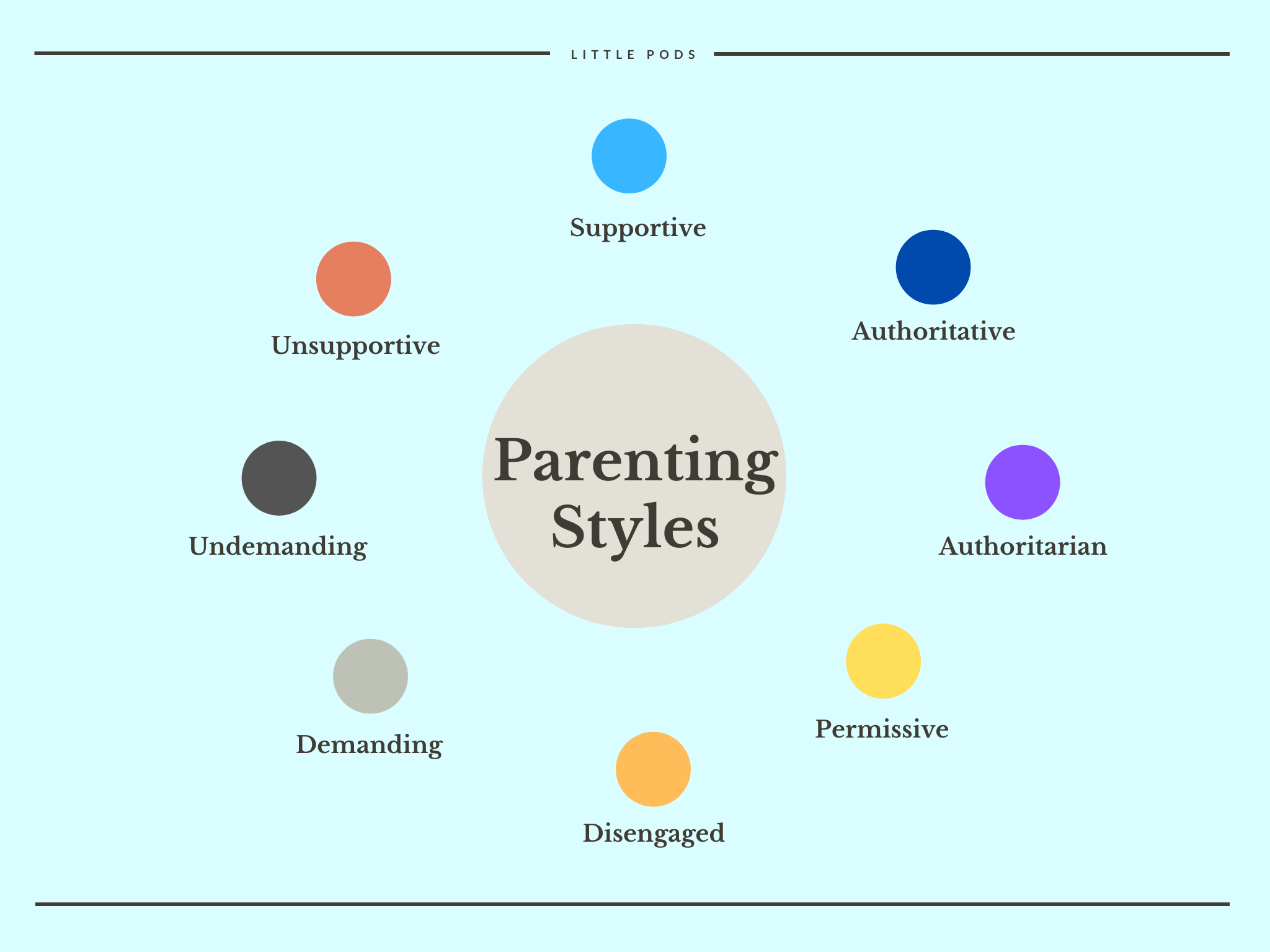
The Right Parenting Style Little Pods
Uninvolved parenting, sometimes referred to as neglectful parenting, is a style characterized by a lack of responsiveness to a child's needs. Uninvolved parents make few to no demands of their children and they are often indifferent, dismissive, or even completely neglectful .

4 Parenting Styles Examples So, We Can Say That Parenting Styles Matter When Raising Children.
PARENTING - Parenting style atau gaya pengasuhan anak bisa berpengaruh pada tumbuh kembang buah hati. Menerapkan tipe parenting yang benar akan membawa dampak baik pada anak saat mereka dewasa.. Sebagai orangtua baru, mungkin Anda masih mencari-cari parenting style yang mana yang paling baik.Ada empat gaya pengasuhan yang banyak diterapkan oleh orangtua.
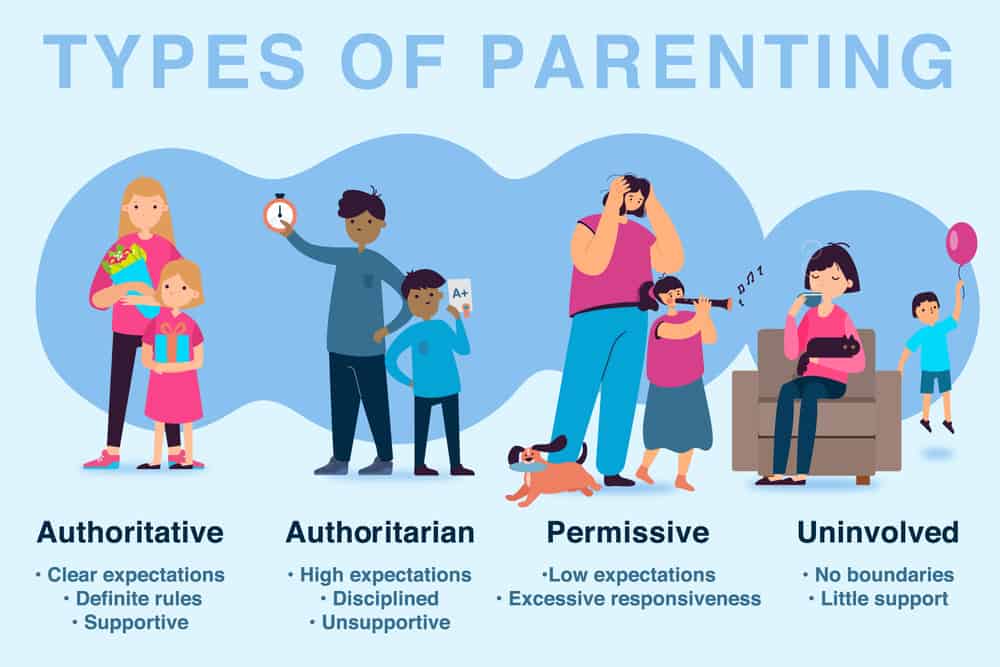
21 and 24 of March PARENTING STYLES
When it comes to parenting, there is a great deal of diversity among families. Cultural backgrounds have a major impact on how the family unit exists and how children are reared. In the last several years, the population of the United States of America has had a makeup. Changes driven by immigration (with different cultural, ethnic, and spiritual ideologies), socioeconomic status, and single.
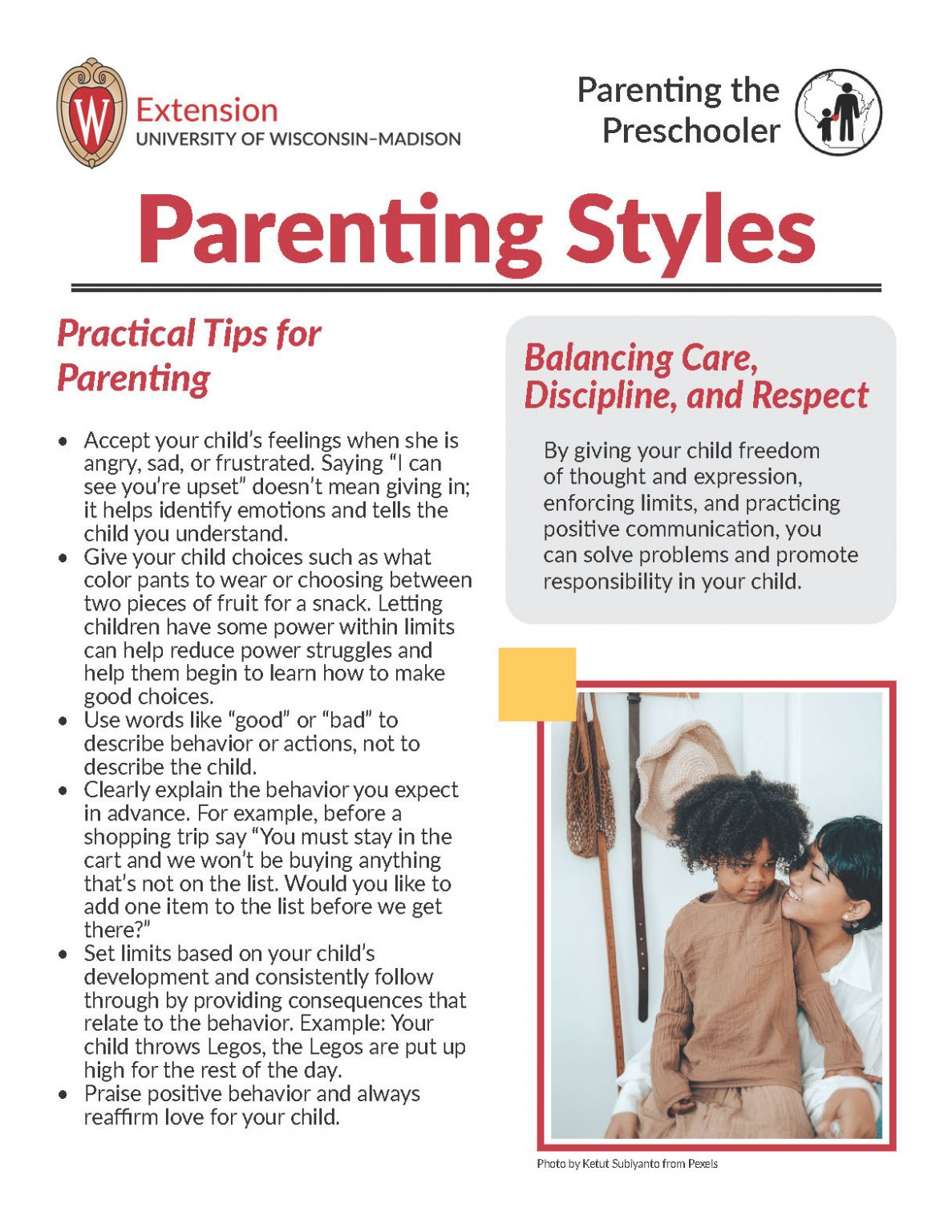
Parenting Styles Parenting The Preschooler
4 parenting styles. There are four main parenting styles: authoritarian, authoritative, permissive and neglectful. You don't have to commit to one style. It's natural to use different styles in different situations. When safety is at stake, a parent might use a firm authoritarian style that leaves no room for negotiation.

Modern Parenting Styles Philippines Mommy Family Blog
2. Jadilah contoh yang baik bagi anak. Pola parenting yang baik sebenarnya perlu dimulai dari diri masing-masing orang tua terlebih dulu. Ini karena anak cenderung akan meniru apa yang orang tua lakukan, bukan apa yang orang tua katakan. Oleh karena itu, tunjukkanlah pada anak perilaku yang baik, contohnya: 3.
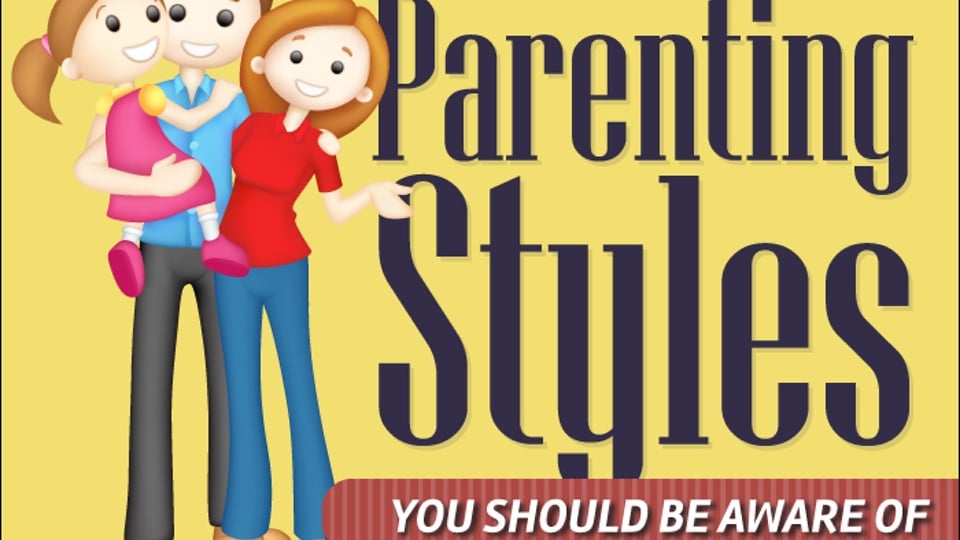
Infographic What Is Your Parenting Style? LifeHack
Berikut adalah beberapa jenis pola asuh yang perlu diketahui orangtua. 1. Authoritarian (otoriter) Ini merupakan gaya pengasuhan orangtua yang mengharapkan agar anak patuh dengan segala perintah tanpa ada pengecualian atau pertanyaan apa pun. Lalu, orangtua juga mendisiplinkan anak dengan cara yang cukup ketat hingga memberi hukuman apabila.
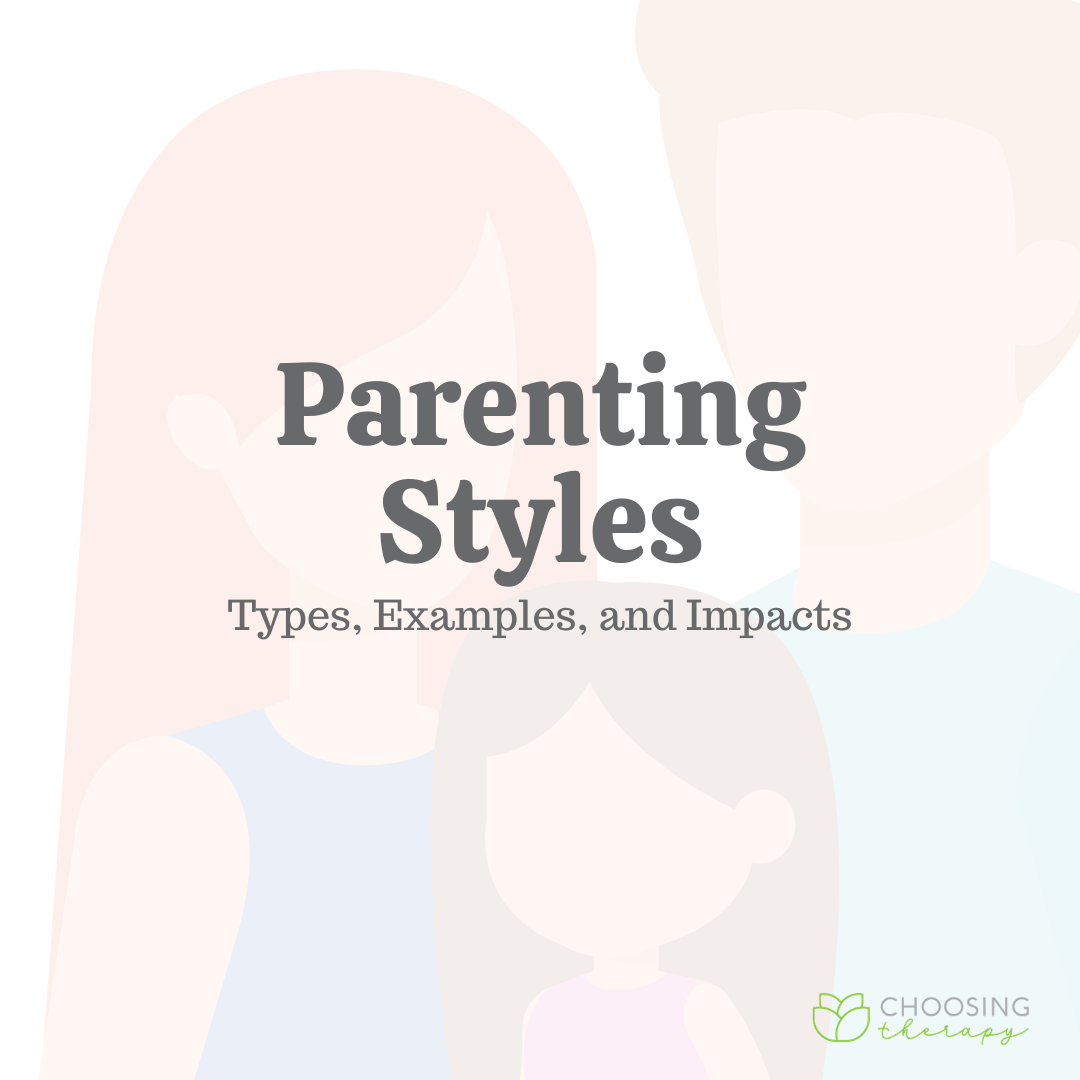
The 4 Types of Parenting Styles & Their Effects on Children Choosing Therapy
Authoritative parenting, a more balanced approach in which parents expect kids to meet certain behavioral standards, but also encourage their children to think for themselves and to develop a sense of autonomy. Later, researchers added a fourth style, uninvolved parenting (Maccoby and Martin 1983).
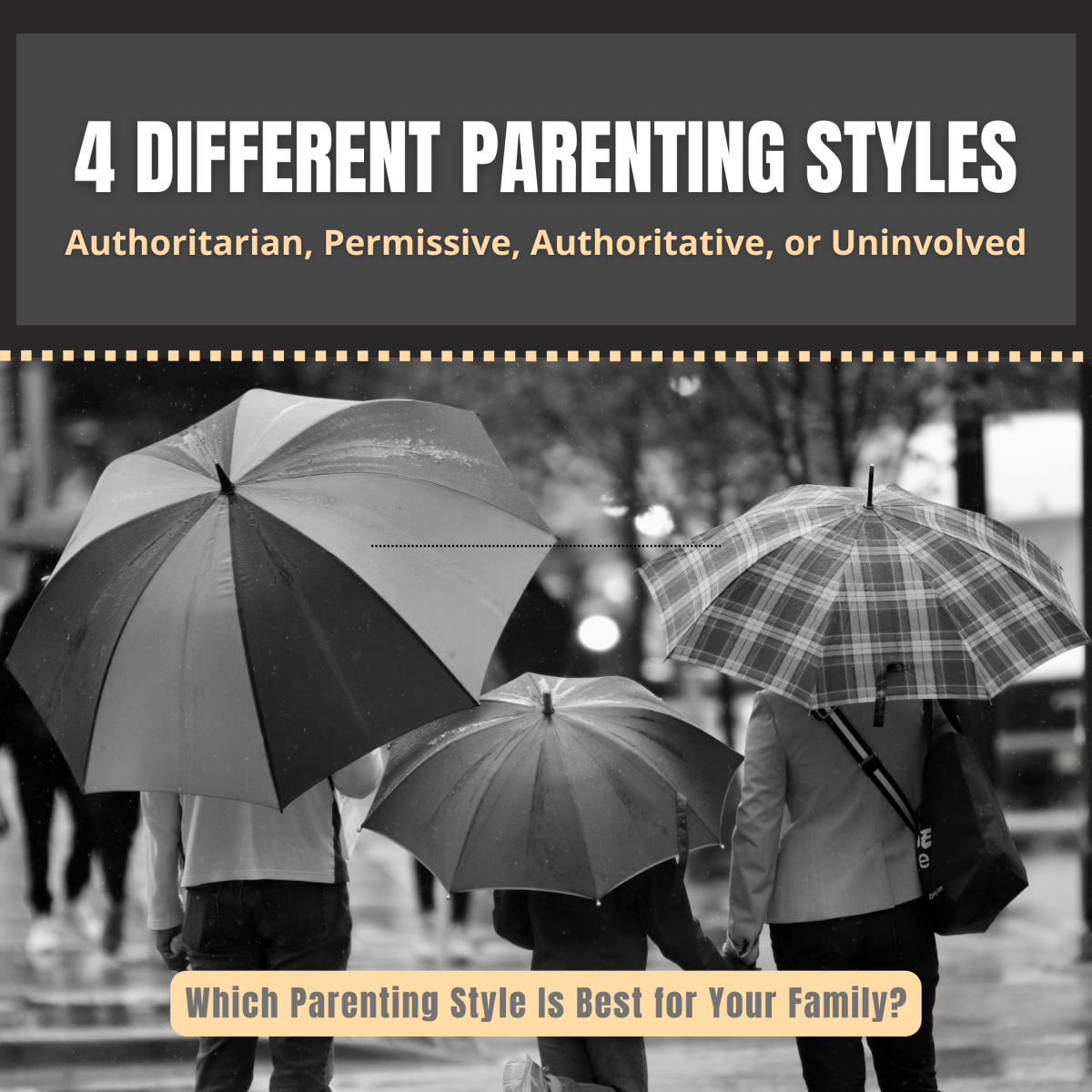
The 4 Types of Parenting Styles WeHaveKids
A parenting style is a pattern of behaviors, attitudes, and approaches that a parent uses when interacting with and raising their child. The study of parenting styles is based on the idea that parents differ in their patterns of parenting and that these patterns can have a significant impact on their children's development and well-being. Parenting styles are distinct from specific parenting.

What are the benefits of an "authoritative parenting style"
Parenting Style and Mental Health. Parenting style is defined as a set of attitudes a parent holds toward their child that are communicated to the child and that, taken together, create an emotional climate in which the parent's behaviors are expressed (Darling and Steinberg, 1993).According to Baumrind (), parenting style is divided into authoritarian, authoritative, and permissive parenting.
:max_bytes(150000):strip_icc()/parenting-styles-2795072-final-b3d3e6a97b99478bb0c9f391d65f8ea3.png)
Why Parenting Styles Matter When Raising Children
Research begun by developmental psychologist Diana Baumrind in the 1960s identified three main parenting styles —authoritarian, indulgent, and authoritative. Later studies added a fourth.

Parenting Style Find out how effective your parenting style is, smart parenting Parenting
Sehingga dapat ditarik benang merah bahwa selain pendidikan yang didapat dari sekolah, optimalisasi peran orang tua dalam parenting style anak sangat berkontribusi besar pada pembentukan karakter anak. Orang tua adalah lingkungan terdekat anak yang memiliki kesempatan dan peranan yang sangat besar dalam pembentukan karakter generasi penerus bangsa.

Parenting StylesWhat are the most effective parenting styles?
Abstract. In the last decades, consensus from laymen, scholars, and policy-makers has emphasized the role of child-parent relationships to promote child's development and positive well-being. Parenting style was claimed as one of the crucial factors for the child's positive adjustment. The main aim of the present study was to investigate.